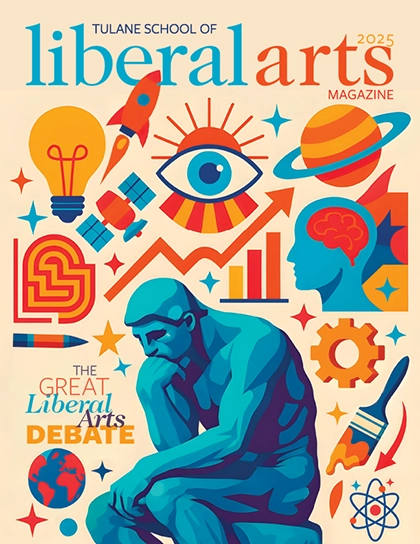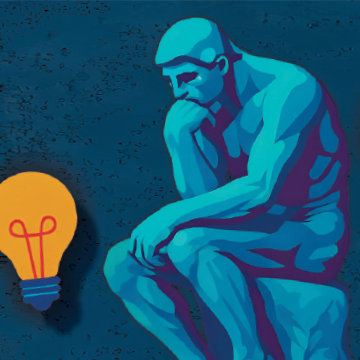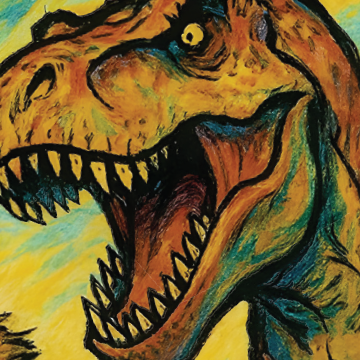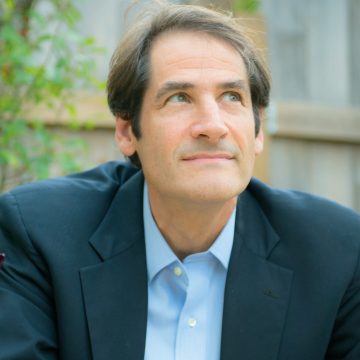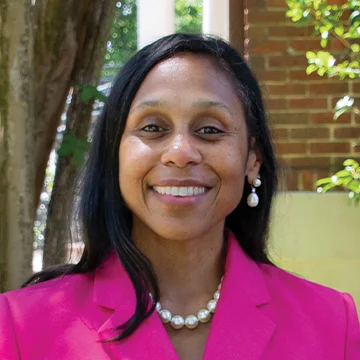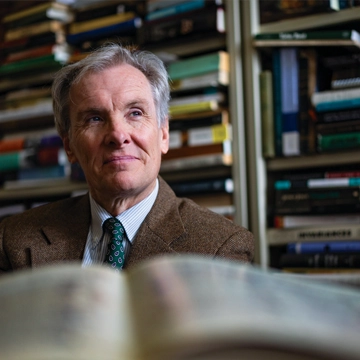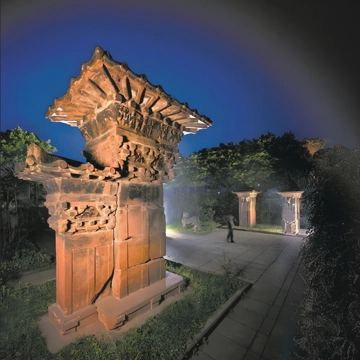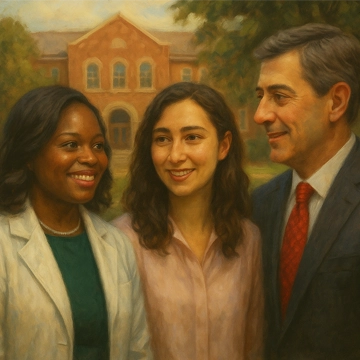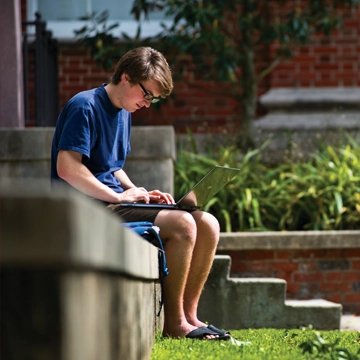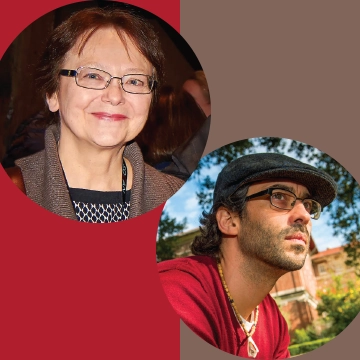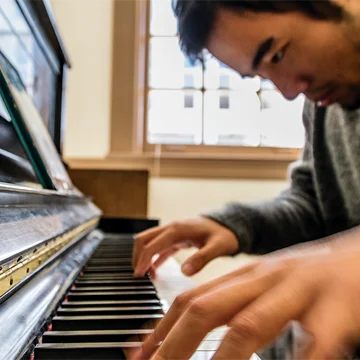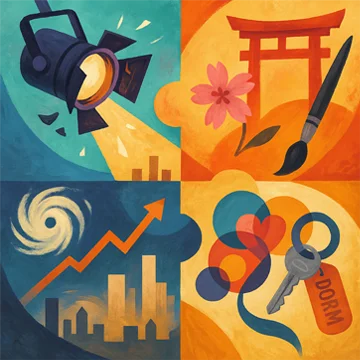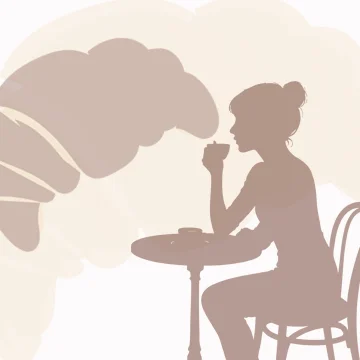From the Editors
At the School of Liberal Arts, we believe that tackling complex questions head-on is not just what we teach, it is who we are. Though the theme of this issue is “The Great Liberal Arts Debate,” we do not intend for it to deliver a singular, definitive answer. Instead, we invite you to reflect on your own Tulane journey — the courses, conversations, and ‘aha!’ moments that defined your liberal arts experience. Did your path emphasize a foundation of history, data, and essential facts; gravitate toward interdisciplinary problem-solving and thinking outside the box; or perhaps a compelling blend of both?
Within these pages, you’ll find diverse perspectives and insights from our faculty, students, and alumni who are actively shaping the future of the humanities, social sciences, and fine and performing arts. We explore how critical thinking, honed through deep engagement with history, philosophy, literature, and social theory, equips our graduates to navigate uncharted professional territories and address society’s most pressing challenges.
This issue is an invitation to lean into the conversation, to challenge assumptions, and to reaffirm all that is encompassed by a liberal arts education. The very skills debated — the capacity to analyze, innovate, and communicate — are precisely what allow us to engage in such a profound societal discussion. We hope you’ll find inspiration to craft your own answer to this great debate.
Thank you for joining us in this exploration.
Contents
Also in This Issue
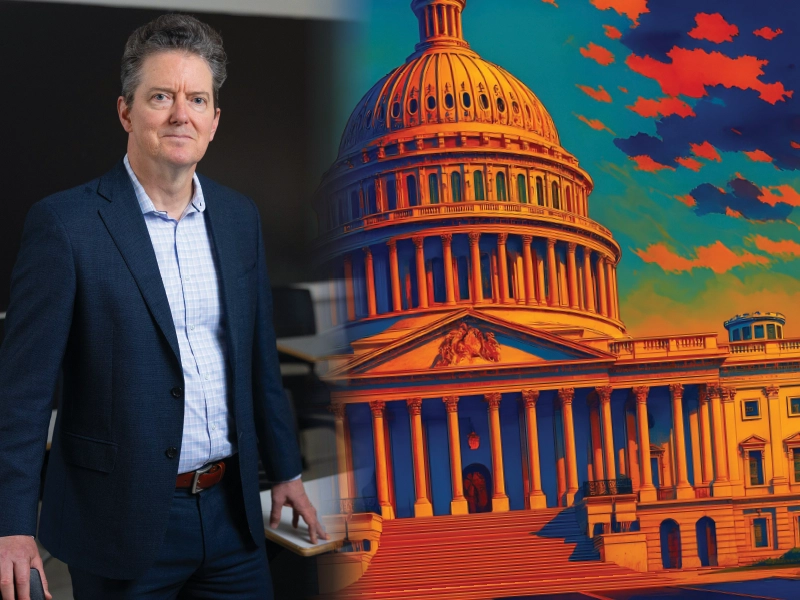
Understanding the State of the Nation
by Douglas N. Harris
Douglas N. Harris describes the State of the Nation Project, a cross-disciplinary effort that reached broad expert and public agreement on 37 measures to grade U.S. well-being. The findings show a paradox: a strong, innovative economy with some improving trends (e.g., violence down since the 1990s) alongside weak performance in democracy, trust, mental health, and inequality, including low belief in democracy. He argues the liberal arts are essential for understanding these contradictions and guiding solutions.


